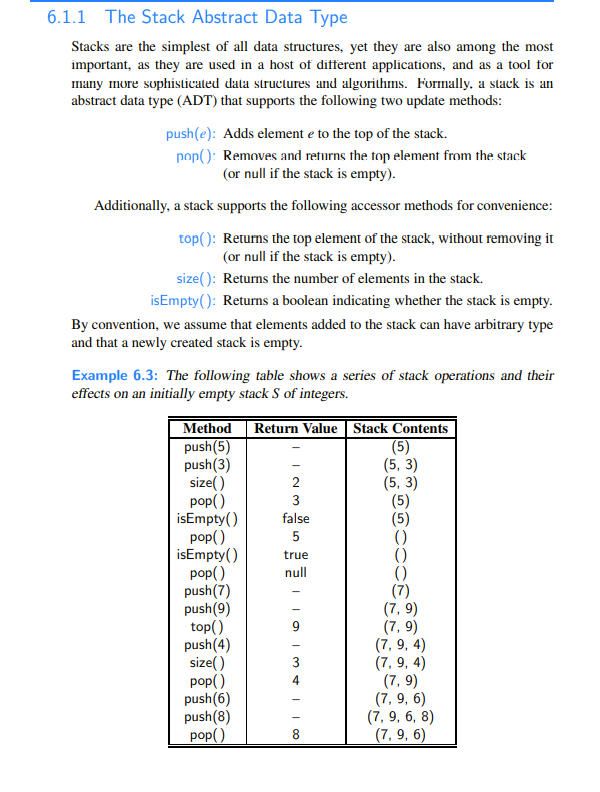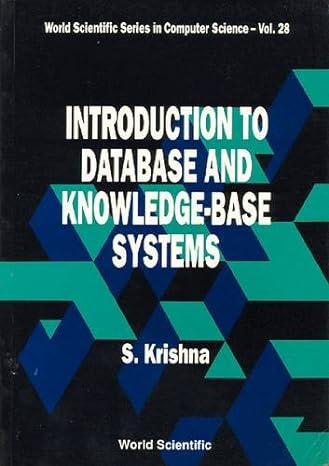Answered step by step
Verified Expert Solution
Question
1 Approved Answer
Chapter 6 Stacks, Queues, and Deques On Page 227, Section 6.1.1, implement the Stack Abstract Data Type. That means implementing all the 5 functions and
Chapter 6 Stacks, Queues, and Deques On Page 227, Section 6.1.1, implement the Stack Abstract Data Type. That means implementing all the 5 functions and run your codes on Example 6.3. Your program should print out that table in Example 6.3.

Step by Step Solution
There are 3 Steps involved in it
Step: 1

Get Instant Access to Expert-Tailored Solutions
See step-by-step solutions with expert insights and AI powered tools for academic success
Step: 2

Step: 3

Ace Your Homework with AI
Get the answers you need in no time with our AI-driven, step-by-step assistance
Get Started


